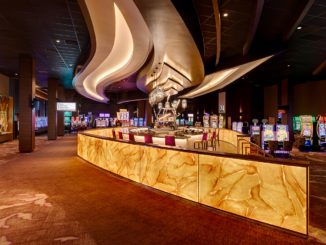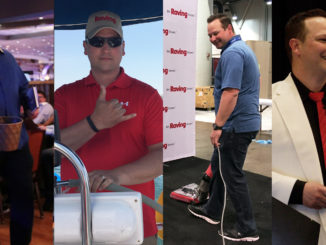The reawakening is here.
Government restrictions are lifting. Vaccination levels are growing. Stimulus funds are beginning to flood markets. Economists are predicting unprecedented GDP growth for 2021.
Pent-up is turning into revved-up.
Welcome to the New Roaring Twenties.
And it is all happening at lightning speed, requiring prompt decisions and instantaneous action.
Casino properties are revving, rebounding and renewing.
All of which depends on governments keeping a lid on the virus and, hopefully, keeping closures in check. We are not in control of the pace of reopening; we are dependent on each state for the timing of lifted restrictions.
The challenges of reopening are turning out to be just as problematic and demanding as closing.
As the industry ponders how to reprogram to a total entertainment experience, let’s consider the trends facing operators as the reopening story unfolds.
-
Acting by Reacting
While we cannot control virus hot spots or vaccination rates, we can control how profitably properties reopen.
During the pandemic closures and restricted operating conditions, management guided properties toward lower expense rates to match the loss of business. By cutting back operations and reducing unnecessary expenses, operators generally created more efficient business models.
As business reappears, operators are now faced with a clear choice. Will casinos reopen using the bottom-line lessons learned during the pandemic, or will we return to less efficient processes of the past?
Each reopening step brings associated expenses. How much of the hard-learned pandemic lessons of expense reduction and operating efficiencies can be adapted as each renewal step appears?
-
Marketing Template Lessons
One overriding trend from the pandemic was the realization that early property adapters tended to be pure gamers.
In the beginning, casino properties reopened largely without amenities. Cash and comps that would be spent on restaurants, spas, live shows, hotels, bars and all other amenities could not be used or were extremely limited.
What remained available for much of 2020 and early 2021 was the gambling product.
Marketing plans had to be adapted to reduce expenditures towards non-gamers and focused on gamers. Out of necessity, promotions downsized to gaming-centric promotional programming that would not create a crush of bodies.
Promotions that were geared toward creating more time on device and rewarded changes in play patterns to earn rewards proved to be the most effective. Food and beverage rewards were reduced due to facility closure and limited space. Live entertainment has been nonexistent and is just beginning to show signs of life.
The result was a more efficient, effective, gaming-focused marketing template.
As properties reopen, will they simply reboot back to less effective, mass-market marketing programming, or learn from the hard-fought lessons?
Marketing managers are realizing that a gaming focus will carry forward with the best results.
-
Short-Staffed Is the New Pandemic
A recent LinkedIn post by Paul Kornfeil featured a photo of a hospitality team member holding a sign that read, “Short-staffed. It’s the New Pandemic. Please be Kind to our Staff.” I could not express it better.
Certain sections of the country are facing unprecedented challenges trying to re-staff after the shutdowns and capacity reductions. The job market suddenly turned into a hot search for the same pool of people to do necessary jobs.
The pace of the resurgence and decisions necessary to meet the change are happening at warp speed.
After heartbreaking, massive cutbacks or furloughs of team members, business volumes began to reappear in many markets during the first quarter of 2021. Vaccinations, the loosening of restrictions and pent-up demand exploded into renewed attendance.
In many sections of the country, staffing is the biggest issue facing the New Roaring Twenties.
Former team members have moved on to other industries. Others choose to take advantage of unemployment or stimulus funding. A segment of past team members may be retraining or re-educating. Some are afraid to return to serving in crowded places.
Whatever the reason, properties are forced to immediately revamp hiring and onboarding practices to try to fill the sudden demand. Training must be reimagined to account for an influx of new team members without experience.
Recruitment now involves new tactics, such as virtual job fairs and successful programs like team member peer recruitment bonuses.
The pandemic sped up technical innovations, such as self-serve kiosks, mobile and cashless programs. The door is now open for any new operational improvement that will make it more convenient for guests and help streamline the execution process.
-
The Return of Baby Boomers
As vaccinations roll out, properties are reporting the return of the missing segment, Baby Boomers. Although many properties have seen an influx of new, younger players, holding onto the returning Baby Boomers remains a profitable pursuit.
Baby Boomers chose to stay home while the virus was raging. Now vaccinations of Baby Boomers grow daily, and they are seen at the tables and slot machines in growing numbers.
Smart properties kept tabs on the high-worth players who suddenly went missing.
Keeping reward levels at pre-pandemic and reaching out to Baby Boomers now will see positive returns. Properties have adapted with sweeping changes in virus safety. Sending that message to returning Baby Boomers will pay off in renewed loyalty.
-
Cleaning Theater and Managing Expectations
How do you manage the expectations of returning guests?
Newly returned guests have fresh expectations of your property, as opposed to gaming veterans who returned to your property months ago.
Which brings me to Perpetual Cleaning and Cleaning Theater.
Recently, the CDC advised against Cleaning Theater, what they called cleaning areas that are unnecessary for the sake of making guests feel safe. The CDC now advises that public establishments clean high-contact areas like door handles.
The problem for casinos is that most guest areas are high-touch.
The perpetual cleaning learned and adapted during the pandemic will have to continue to ensure that team members and guests remain safe.
Newly returning guests see properties with fresh eyes. After months of staying at home, the constant cleaning, temperature taking, plastic barriers and social distancing will be comforting.
Keeping a virus clean message in brand communications will continue for the foreseeable future.
Finally, casino companies will continue virus safety well beyond the norms of other retail and crowd-based businesses. Everything in a casino is high-touch, and keeping team members and guests feeling safe is part of the new base product.
When you think about it, casino and hospitality is the ultimate high-touch business. It’s what we sell. After over a year of staying at home, our guests are looking forward to returning repeatedly to their home away from home.





